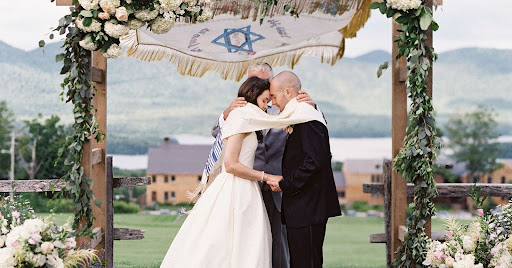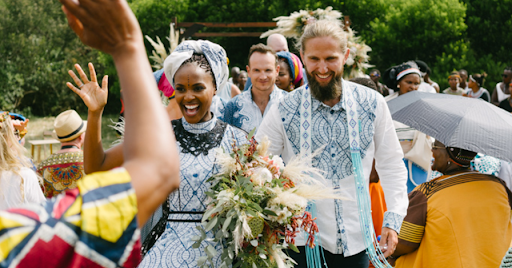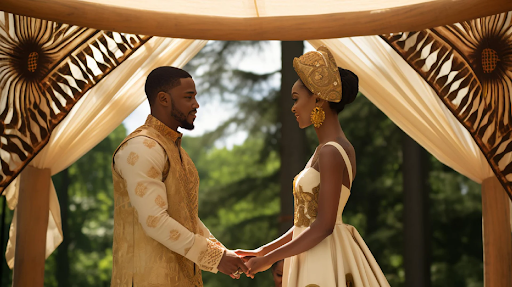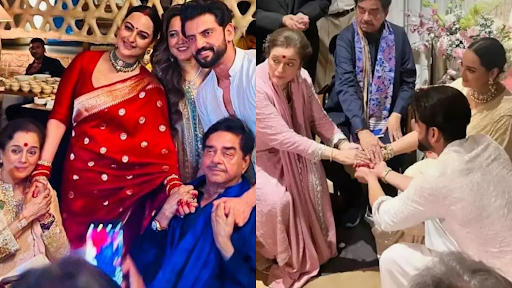Introduction
Weddings display love, commitment, and unification. The rich tapestry of cultural backgrounds that couples bring into this very special day shapes many weddings. Cultural influences go beyond traditions, attire, and rituals down to the wedding venue. This is not just about a backdrop but has cultural connotations, denotes familial values, and pays respect to heritage. In our blog, we would delve into how backgrounds spark off wedding venues to bring into notice the plurality and intricacy that different customs and traditions infuse in this essential celebration.
Importance of Cultural Venues
The importance of a wedding venue to many couples is vested in cultural significance. The choice of a venue by a couple is not just aesthetic but is based on tradition and setting a place for the cultural rituals to be followed. For example, Hindu marriages commonly occur in temples or mandaps, which are symbolic ceremonial canopies for the couple before they enter into a holy union. In essence, they are chosen for their spiritual significance and their capacity to accommodate the complexity of rituals, which rest central in Hindu marriage ceremonies.
Similarly, Jewish ceremonies may be held beneath a chuppah, although this can be erected in synagogues as well as many other outdoor and indoor gardens, even in a couple’s own home. A chuppah symbolizes the home that the couple will build together in that space. Typically, the space where it is erected holds personal and familial history and connections to tradition and community.

Cultural Symbolism in Venue Choice
Different cultures overlay their wedding venues with symbolic meaning. In Chinese culture, for example, red is a color of luck and prosperity layered in the venue in the décor. Traditional Chinese weddings may be held in restaurants or banquet halls themed in red and gold to connote joy and prosperity. These places will have to accommodate the number of invited guests and lawyers of good fortune.
If we compare this preference in venues to Western weddings, it prefers churches, country clubs, or beautiful outdoor locations, in contrast. A church speaks of the prevalence of the Christian tradition and sacrament, for instance, while an outdoor area might connote freedom, very literal natural beauty, and a sense of return to a more pristine simplicity, speaking equally to these values in those couples who value these things most.
Ancestral Heritage
For most couples, the wedding venue is a place that acts as an inclination for their past and their heritage. This is perhaps most true in multicultural weddings, in which couples may look for venues that pay homage to both backgrounds. A couple with Indian and Western heritage might pick a venue that could host a traditional Hindu ceremony and a Western-style reception. This melting pot of two cultures can lead to a rich, inclusive experience that reflects their diversified backgrounds.
Wedding venues in Africa, for instance, would take place within family homes or community centers, possibly using the family setting to incorporate themes of family and community. In other words, it is not just the venue but the symbolic gestures of their homes and the community spirit African cultures are founded upon.

Modern Adaptations of Traditional Venues
While these traditional venues value culture, many contemporary couples are looking to mix these traditions with contemporary settings. It may mean selecting unconventional venues but pointing out the cultural elements residing within. For instance, they can choose to have their events in modern art galleries yet include traditional elements through decorations, music, and other rituals.
This nexus of traditional and modern gives an opportunity to a wedding couple to personalize their wedding, although with respect to their heritage. It also goes on to symbolize the evolving nature of cultural practices and how they can be reinvented to suit changing modern lifestyles and values.
Destination Weddings and Cultural Exploration
Another trend that ‘-like captures the aspects of cultural backgrounds that influence venue choice is destination weddings. Couples may choose places that define their heritage or where they will get a unique cultural experience. A wedding taking place in Tuscany, for example, could be smiled on by those couples with Italian heritage, while others could be wowed by the idea of the romance associated with Italian culture. Thus, a wedding organization in Bali may symbolize for a similar couple the attachment or sympathetic attitude for Indonesian culture.
Cultural research and assimilation into another culture offer the couples and their guests an enriching experience—one in wedding celebration and the creation of long-lasting memories that shape life far after the ceremony.

Conclusion
Selection of a wedding venue is a very personal decision that is influenced by cultural background, traditions, and values espoused by the couple. From sacred temples and synagogues to modern art galleries and picturesque outdoor spots, each location speaks to a heritage and story that belongs uniquely to each couple. As weddings become further adapted to the needs and desires of the individual bride and groom, it’s a sure thing that combining old and new will help shape the future of wedding venues into celebrations as diverse and vibrant as the cultures they represent.
The reality is, of course, that the venue means much more than just a physical location; it is a canvas upon which the rich tapestry of culture and individual stories gets built into a beautiful kaleidoscope of love and togetherness.

